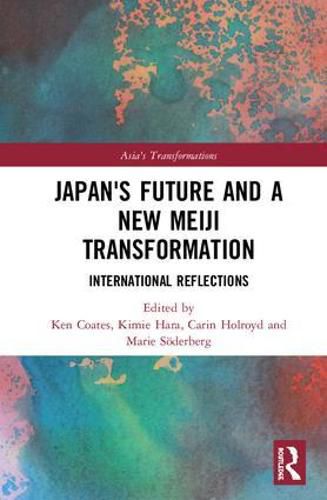Readings Newsletter
Become a Readings Member to make your shopping experience even easier.
Sign in or sign up for free!
You’re not far away from qualifying for FREE standard shipping within Australia
You’ve qualified for FREE standard shipping within Australia
The cart is loading…






Bringing together the work of sixteen international Japan specialists and scholars, this book analyzes Japan’s culture and history to reflect on the critical policy decisions and national commitments required for the country to continue to succeed.
Comparing the current situation with the uncertainties of the late nineteenth century, this book investigates the possibility and desirability of a New Meiji Transformation in Japan. Set in the context of perceived demographic, ecological, fiscal and political decline in Japan, it explores what a New Meiji initiative would look like in the twenty-first century and whether a new era of renewal is needed to maintain and improve quality of life.
An interdisciplinary volume, this book covers contemporary issues in Japanese foreign, defense and nuclear strategies, as well as its aging population, higher education structure and environmental policies. As such Japan’s Future and a New Meiji Transformation will be of great interest to students and scholars of Japanese politics, economics and history, as well as Asian Studies more generally.
$9.00 standard shipping within Australia
FREE standard shipping within Australia for orders over $100.00
Express & International shipping calculated at checkout
Stock availability can be subject to change without notice. We recommend calling the shop or contacting our online team to check availability of low stock items. Please see our Shopping Online page for more details.
Bringing together the work of sixteen international Japan specialists and scholars, this book analyzes Japan’s culture and history to reflect on the critical policy decisions and national commitments required for the country to continue to succeed.
Comparing the current situation with the uncertainties of the late nineteenth century, this book investigates the possibility and desirability of a New Meiji Transformation in Japan. Set in the context of perceived demographic, ecological, fiscal and political decline in Japan, it explores what a New Meiji initiative would look like in the twenty-first century and whether a new era of renewal is needed to maintain and improve quality of life.
An interdisciplinary volume, this book covers contemporary issues in Japanese foreign, defense and nuclear strategies, as well as its aging population, higher education structure and environmental policies. As such Japan’s Future and a New Meiji Transformation will be of great interest to students and scholars of Japanese politics, economics and history, as well as Asian Studies more generally.